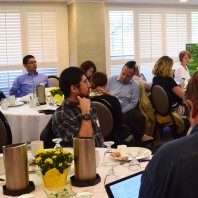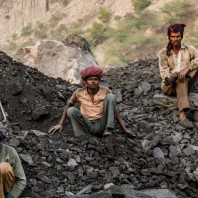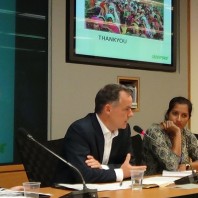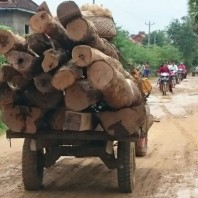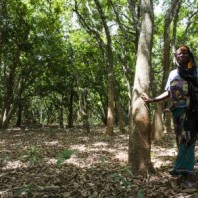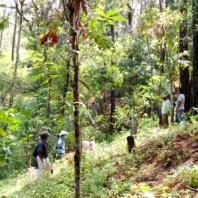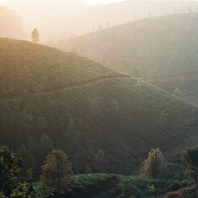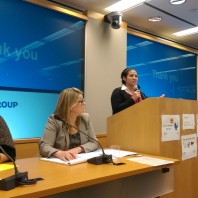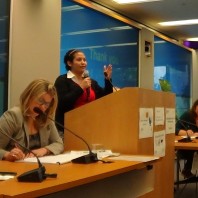SECURING TENURE RIGHTS TO PROTECT FORESTS AND COMBAT CLIMATE CHANGE: EXPLORING THE ROLE OF DEVELOPMENT FINANCE Hosted by Bank Information Center, Oxfam International, Rights and Resources Initiative and Forest Peoples Programme Objectives Held on October 11, 2016, this event represented a unique opportunity for participants to come together and strategize around the role of development …
by Nezir Sinani, Europe and Central Asia Manager The World Bank Group has secretly funded a coal boom in Asia despite announcing a conditional moratorium on such projects in 2013. Earlier this year, World Bank President Jim Yong Kim said, “If Asia implements the coal-based plans right now, I think we are finished.” Yet the …
The draft IDA18 Deputies’ Report—released to the public at the end of October and closed for public comment on Nov. 11—indicates the 18th replenishment of IDA will result in several major changes to the way the World Bank operates in its poorest member countries. These changes are described in the report as “groundbreaking” and “transformational,” …
This World Bank Annual Meetings 2016 Civil Society Policy Forum session addressed how the World Bank Group can ensure that its financial intermediary (FI) investments are consistent with its forest and climate commitments. New research by Inclusive Development International on the impacts of IFC FI investments on forests, land rights, and climate was presented. A …
World Bank Funded Land Allocation for Social and Economic Development (LASED) Project in Cambodia On Tuesday, finance ministers from around the world concluded the third negotiation for the 18th replenishment of the International Development Association (IDA), the World Bank’s fund for the poorest countries. While IDA should be focusing its investments in areas and sectors …
By Debbie Pierce, Forest Associate The World Bank introduced its first safeguard policies over thirty years ago, in response to outrage over harmful impacts of its development projects, including widespread forest destruction and eviction of indigenous peoples. The safeguards were designed to ensure that these impacts would be assessed before the project was implemented, and …
Forests are a livelihood source for an estimated 1.6 billion forest dependent peoples, many of whom are indigenous. These forest dependent peoples comprise 90% of the world’s people living in extreme poverty. It is vital that the World Bank’s safeguard policies ensure protections and rights for these communities, at a time when their resources are …
BIC, along with in-country partners, has published three new case studies on the impacts of several World Bank projects on forests and forest communities. You can find them below: A Case Study of the World Bank’s Land Allocation for Social and Economic Development Project in Cambodia The World Bank Para Rural Integrated Development Project: A …
The term ‘tipping point’ has been used to describe the current state of affairs in the past few months on numerous occasions. From climate change to politics, society is being called into action by the fear of reaching a tipping point – a moment of sudden and irreversible change. Even deforestation isn’t exempt from …
Conservation International & BIC hosted a panel event at the Civil Society Policy Forum of the World Bank 2016 Spring Meetings on the Bank’s role in supporting forest commitments coming out of COP21. The panel includes Bank staff working on forests and climate change; CSO partners from FPP, WRI, CI, and Honduran indigenous organization MASTA; …

